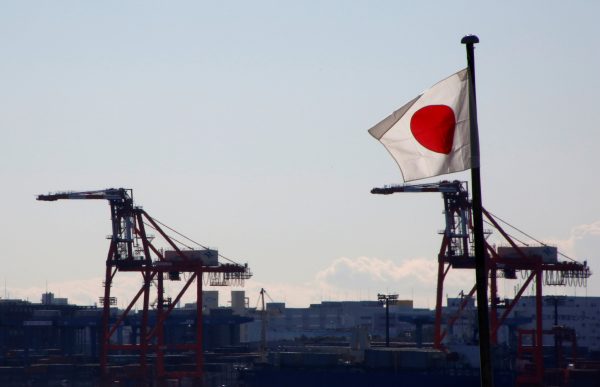Against this background, at the Asia-Pacific Economic Cooperation (APEC) meeting held on 20 November 2016, Japan’s Prime Minister Shinzo Abe stressed that free trade is the wellspring of growth in the world economy, and expressed his opinion that protectionism should be opposed by economic policies that promote inclusive growth.
A great deal of empirical research supports Abe’s contention that free trade promotes economic growth. This is not merely because free trade leads industries with a comparative advantage to efficient production, as David Ricardo claimed. Engaging with overseas ‘outsiders’ via trade enables domestic businesses to absorb new knowledge, which promotes innovation.
The fact that trade and investment stimulate innovation and result in social development is also clear from Japan’s experience at the end of the Tokugawa Shogunate when it transformed from a closed to an open economy and achieved rapid growth thereafter. My own estimates, taking into consideration the effect of this type of innovation, indicate that the TPP has the potential to boost Japan’s per capita GDP by 1.5 per cent.
But because establishing and sustaining ties with outsiders entail costs, individuals and corporate networks tend to remain closed. New knowledge does not flow into a closed economy, and the economy becomes stagnant. It can be the case that people seek the cause of this situation in outsiders, for example, in imports or capital flows from overseas, with the result that the economy becomes even more closed. If this situation of network closure and economic stagnation sparks a vicious cycle, it will be difficult to correct the increasing depth of economic insularity. History shows us that this situation on a global scale led to the formation of economic blocs, eventually contributing to the start of the Second World War.
It is essential that both President-elect Trump’s intention to withdraw from the TPP and Brexit do not initiate a vicious cycle that leads to this type of chaos. Japan must play the vital role of preventing this direction.
Japan itself must become more open. During the recent US election, Trump declared that the TPP was unfair because it would lower US tariffs on Japanese automobiles, while Japan’s tariffs on US beef would remain in place. This is not a wholly misguided argument. As a result of Japan’s establishment of ‘sanctuaries’ during the TPP negotiations, import barriers for products including rice, dairy products and meat were to remain.
In fact, the benefits of the TPP to the United States were not particularly large. According to estimates by Professor John Gilbert of Utah State University and others, US GDP would only increase by 0.02 per cent as a result of the TPP as agreed upon. Compared to estimated increases of 0.3 per cent for Japan and 1.6 per cent for Malaysia, the benefits to be reaped by the United States were very small.
This is because while US agricultural production would increase, production in industries like textiles and automobiles would decline. The widespread support for President-elect Trump, an opponent of the TPP, can be understood as the result of dissatisfaction that the agreement would take jobs from US manufacturers, and that the majority of US citizens would not adequately benefit from it.
At present, the best orientation for Japan would be to aim toward a bilateral economic partnership agreement between Japan and the United States, and beyond this, to focus on the realisation of the Free Trade Area of the Asia-Pacific (FTAAP), which involves a greater number of nations than the TPP.
Politically speaking, the liberalisation of the industries that have been set aside so far as sanctuaries will not be an easy matter. Naturally, the people involved in the sanctuary industries are opposed to liberalisation. But as already noted, the liberalisation of trade and investment will considerably boost Japan’s GDP as a whole. Under the inclusive policies espoused by Abe, it would be more than possible for all Japanese citizens to enjoy these benefits brought by the liberalisation of trade and investment.
But these inclusive policies must not involve protectionism. This could dampen motivation among producers and cause economic stagnation, cancelling out the benefits of trade and investment liberalisation. Because of this, the implementation of redistributive policies that promote initiatives among producers will be an important factor. Rather than establishing barriers to participation in transactions in agricultural land, the provision of fixed subsidies to farmers for specific periods would enable the redistribution of income in a manner that would not rob farmers of the incentive to realise innovations. In this way, it could be possible to transform Japanese agriculture into an internationally competitive industry over the medium to long term through technological innovation.
Policies that support the establishment of a diverse range of ties are also inclusive. Small and medium-sized enterprises (SMEs) and micro-enterprises lack the manpower and the information required to establish connections with outsiders. Support from the government for the provision of information or for business matching in order to assist SMEs in expanding overseas, and initiatives such as the establishment of networks between farmers, companies, and universities in order to expand sales channels and realise innovation, can ensure that the benefits of liberalisation extend to every area of the economy.
Through such policies, it is possible to build institutions that enable all citizens to enjoy the fruits of growth under globalisation. Hopefully the Japanese government will implement such policies, work to prevent the closure of economic networks and kerb the destruction that may ensue.
Todo Yasuyuki is Professor at the Faculty of Political Science and Economics, Waseda University.
A version of this article was first published here by REITI.

